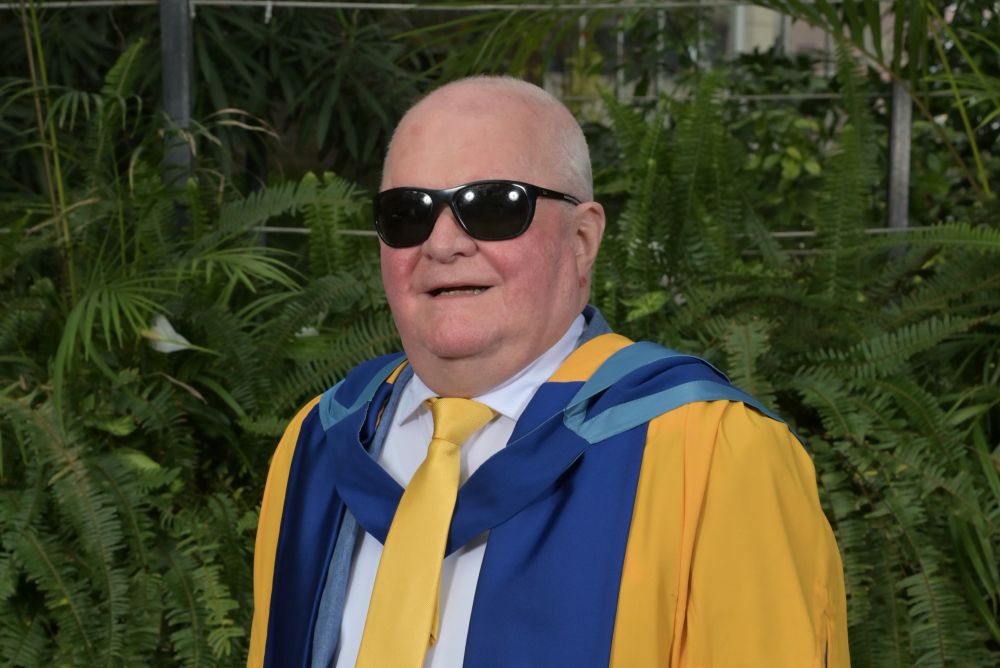OU News
News from The Open University
- Home
- Disability campaigner honoured for his work in education
Disability campaigner honoured for his work in education
Posted on • Honorary Graduate

A campaigner for disabled people who has helped to transform their learning experience, not just at The Open University but beyond, has been recognised by the OU with an honorary doctorate.
Derek Child was registered blind in his late twenties due to a childhood illness and realised that education would give him the skills to navigate the professional world.
He began his higher education as a mature student studying sociology, social policy and social work and devoted his career to making the world a better place for other disabled people to inhabit.
Derek’s lived experience and professional expertise meant he has successfully championed opportunities for disabled people to gain employment and independence and helped in the removal of barriers to give them equal access to education.
Pioneering partnership
It began with a pioneering partnership between The Open University and the Royal National Institute of Blind People (RNIB), which resulted in the OU’s ground-breaking Audio Recording Centre at Walton Hall in the late 1980s.
As the OU embraced modern technology, the audio recording centre eventually became obsolete and was closed, but it paved the way for today’s learning experience, opening more doors for people studying with the OU remotely.
In 2004, Derek became the OU’s head of Equality and Diversity and was a founding member of the charity Skill, which campaigned for 35 years to drive change in all post-16 education, employment and training institutions.
He’s a former trustee of the RNIB and retired in 2019. Whilst there, he focused on promoting education, training and services, and Derek made certain the Institute delivers on its commitment to ensuring that eye diseases receive early diagnosis so that sight loss can be addressed and, in some cases, prevented.
At a recent ceremony, he said of his award:
“I was surprised and shocked because it came completely out of the blue, but I was also very proud. The university is an extraordinary institution and I’ve been very grateful to be part of that.”
He thanked OU staff for their support in helping him achieve so much together and said he hoped their joint legacy and influence on the external world continued to ensure that disability, equality and inclusion was part of what they do…
“not an add on but something essential to the development of a fairer society”.